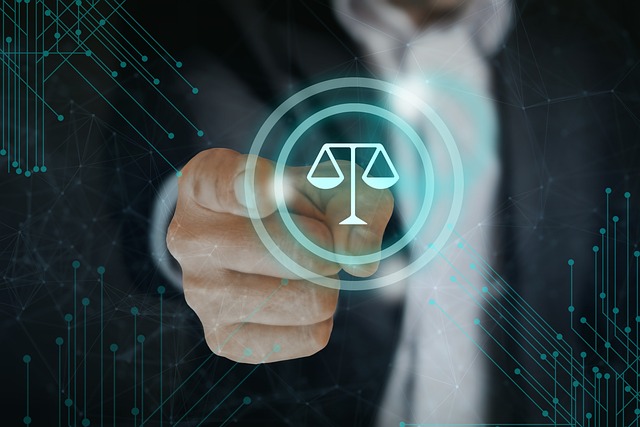
Category: Littleton Colorado Bankruptcy Lawyer
Littleton Colorado Bankruptcy Lawyer: Navigating Debt Relief Solutions
Introduction
In the complex landscape of financial law, bankruptcy stands as a crucial process for individuals and businesses grappling with insurmountable debt. At the forefront of this legal domain in the vibrant city of Littleton, Colorado, lies the role of a specialized practitioner—the Littleton Colorado Bankruptcy Lawyer. This comprehensive guide delves into the intricate world of these legal experts, exploring their functions, impact, and significance in both local and global contexts. By the end, readers will gain a profound understanding of how bankruptcy law shapes lives and businesses, offering a path to financial rebirth.
Understanding Littleton Colorado Bankruptcy Lawyer
Definition and Core Components
A Littleton Colorado Bankruptcy Lawyer is an attorney specializing in the intricate laws and procedures surrounding bankruptcy. Bankruptcy, in its essence, is a legal process designed to provide relief to individuals or entities unable to repay their debts. This lawyer plays a pivotal role in guiding clients through this complex journey, ensuring their rights are protected and their financial future is secured.
The core components of their practice include:
- Debt Analysis: Assessing the nature and extent of a client’s debt obligations, including credit card debt, medical bills, and business loans.
- Petition Filing: Preparing and filing the necessary legal documents with the court to initiate the bankruptcy process.
- Debtor Education: Educating clients about their rights and responsibilities during bankruptcy and helping them understand the impact of this decision.
- Asset Protection: Advising on the protection of assets and helping clients navigate exemptions available under the law.
- Creditor Communication: Interacting with creditors, negotiating payment plans, and representing clients in creditor meetings.
- Court Representation: Appearing in court to argue on behalf of clients, ensuring their interests are defended throughout the proceedings.
Historical Context and Significance
Bankruptcy laws have evolved over centuries, reflecting societal shifts and economic realities. In the United States, the first comprehensive bankruptcy act was enacted in 1898, providing a framework for individuals and businesses to reorganize or liquidate debt. Over time, these laws have been refined, offering various chapters under the Bankruptcy Code (Title 11 of the United States Code) to cater to distinct financial needs.
In Colorado, as in many states, bankruptcy lawyers have been integral to helping residents navigate these complex legal frameworks. Littleton, a rapidly growing suburb of Denver, has seen an increase in individuals and businesses seeking debt relief through bankruptcy. The role of these attorneys is more critical than ever, providing much-needed guidance in a often-overwhelming process.
Global Reach and Impact
While bankruptcy laws vary across jurisdictions worldwide, the principles and practices have spread globally, influenced by international organizations and legal collaborations. The International Association of Insolvency Professionals (IAIP) plays a pivotal role in fostering knowledge sharing and harmonizing insolvency laws internationally.
In countries like the UK, Australia, and Canada, bankruptcy procedures follow similar yet distinct paths, with local bar associations and legal bodies regulating practice standards. For instance, the Law Society of England and Wales provides guidelines for insolvency practitioners, ensuring competent and ethical service. These global connections highlight the international impact of Littleton Colorado Bankruptcy Lawyers, as they may collaborate with foreign counterparts to offer comprehensive solutions for multinational clients.
Economic Considerations
Market Dynamics
The bankruptcy market in Littleton, like many cities, is influenced by local economic conditions. According to a 2023 report by the Federal Reserve Bank of Kansas City, Colorado’s personal bankruptcies have shown fluctuations, with a slight increase in recent years. This trend underscores the constant demand for bankruptcy services, especially in growing metropolitan areas.
Investment and Debt Patterns
Littleton’s vibrant economy, characterized by a mix of technology, healthcare, and service industries, contributes to unique debt patterns among its residents. High-income earners in tech startups may face unforeseen financial setbacks, while medical debt is a significant concern for many. These factors drive the need for specialized legal services, prompting individuals and businesses to seek bankruptcy as a viable solution.
Economic Systems and Bankruptcy’s Role
Bankruptcy serves as a critical mechanism within economic systems, allowing for financial restructuring and fresh starts. In Littleton, as in many cities, it acts as a safety net for citizens facing economic distress, preventing default cascades that could impact the broader economy. By facilitating debt resolution, bankruptcy lawyers contribute to maintaining economic stability and promoting healthy business practices.
Technological Advancements
Digital Transformation of Bankruptcy Law
Technology has revolutionized the practice of bankruptcy law, enhancing efficiency and accessibility. Online filing systems, for instance, have streamlined the petition process, reducing paperwork and processing times. The emergence of legal tech platforms offers clients convenient access to information and legal services, potentially reducing the need for in-person consultations.
AI and Automation
Artificial Intelligence (AI) is transforming various aspects of bankruptcy practice. AI-powered document review tools can analyze legal documents swiftly, identifying key clauses and potential risks. Automated credit reporting systems provide real-time financial data, aiding lawyers in making informed decisions. These technologies not only improve accuracy but also allow attorneys to focus more on strategic decision-making rather than tedious tasks.
Cloud-Based Case Management
Cloud-based case management software enables bankruptcy lawyers to securely store client records, share documents with colleagues, and collaborate remotely. This technology enhances collaboration among legal teams, particularly in multi-jurisdictional cases, ensuring all practitioners have access to the latest information.
The Role of Littleton Colorado Bankruptcy Lawyers in Modern Practice
Client Education and Engagement
In today’s digital age, clients expect a user-friendly experience when seeking legal services. Littleton bankruptcy lawyers employ technology to educate clients through interactive platforms, webinars, and online resources, making complex concepts more accessible. This approach fosters client engagement, encouraging active participation in their financial recovery.
Specialized Practice Areas
Lawyers in this field often develop expertise in specific areas, such as:
- Chapter 7 Bankruptcy: Liquidation of non-exempt assets to pay creditors.
- Chapter 13 Bankruptcy: Reorganization plan for individuals with regular income to repay debts over a set period.
- Business Bankruptcy: Involving complex procedures for businesses facing financial distress, often involving multiple stakeholders.
- Student Loan Debt Relief: A growing area of focus, as student loan debt continues to rise among young adults.
Collaboration and Referral Networks
Given the intricate nature of bankruptcy cases, collaboration is essential. Littleton lawyers may work closely with financial counselors, credit repair agencies, and other legal professionals to provide comprehensive client care. Strong referral networks ensure clients receive tailored solutions, even in complex situations.
Case Studies: Real-World Impact
Case Study 1: Saving a Struggling Startup
A young tech entrepreneur in Littleton found himself in a bind after his startup failed to secure funding. With personal guaranties on business loans, he faced overwhelming debt. A local bankruptcy lawyer helped him navigate Chapter 13 bankruptcy, allowing for a reorganization plan that eventually led to business recovery and a fresh start.
Case Study 2: Medical Debt Relief for a Working Family
A hard-working family in Littleton struggled with mounting medical bills after a serious health crisis. Through the guidance of their bankruptcy attorney, they filed for Chapter 7 bankruptcy, resulting in the discharge of substantial debt, enabling them to rebuild their financial stability.
Challenges and Ethical Considerations
Legal Ethics and Client Confidentiality
Bankruptcy lawyers are bound by strict ethical guidelines, including maintaining client confidentiality. The American Bar Association’s Model Rules of Professional Conduct provide a framework for ethical practice, ensuring clients’ sensitive information remains secure.
Challenges in a Complex Field
Despite technological advancements, bankruptcy law remains complex, presenting challenges:
- Changing Laws: Bankruptcy laws are subject to periodic amendments, requiring lawyers to stay updated on changes that may impact their cases.
- Creditor Resistance: Some creditors may actively oppose bankruptcy filings, leading to legal battles and the need for robust strategic planning.
- Client Expectations: Managing client expectations is crucial, as outcomes vary based on unique financial circumstances and court dispositions.
Conclusion: Empowering Financial Fresh Starts
The role of Littleton Colorado Bankruptcy Lawyers extends far beyond legal representation; they offer a lifeline to individuals and businesses grappling with debt. In an era marked by economic fluctuations and rising debt burdens, their expertise is more valuable than ever. Through education, advocacy, and technological innovation, these attorneys empower clients to take control of their financial futures, ensuring that bankruptcy becomes a catalyst for renewal and prosperity in the vibrant community of Littleton, Colorado, and beyond.









